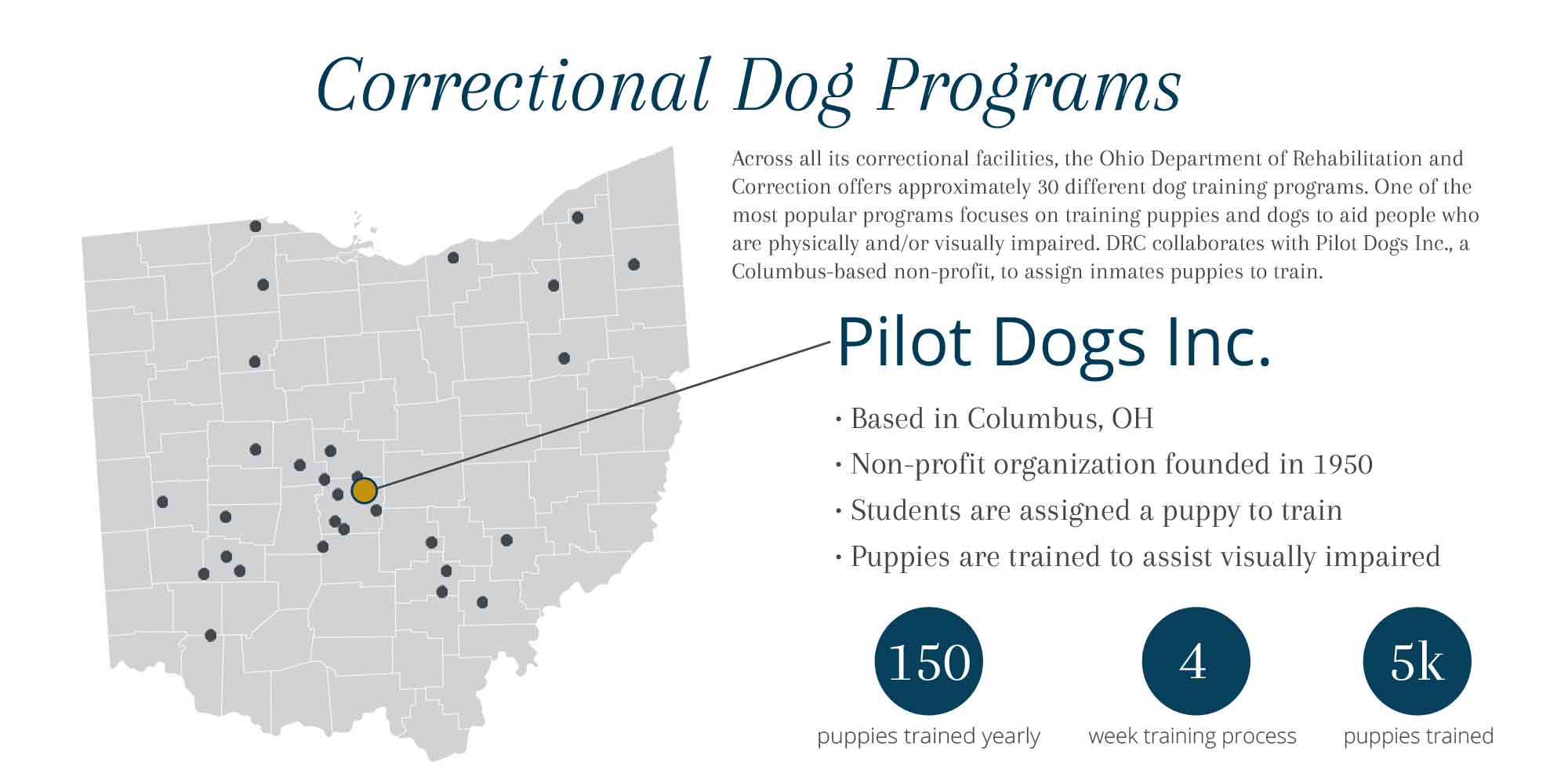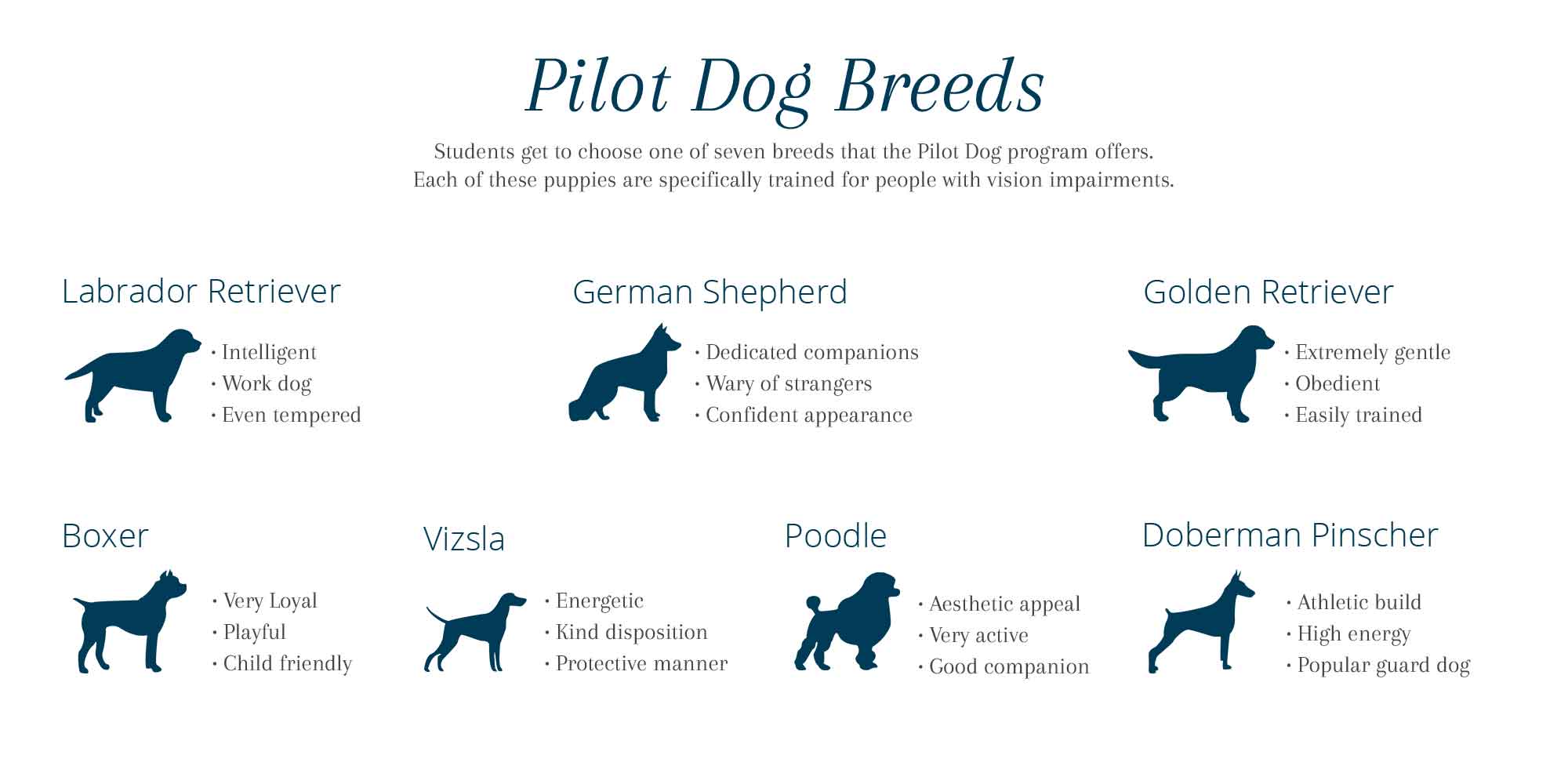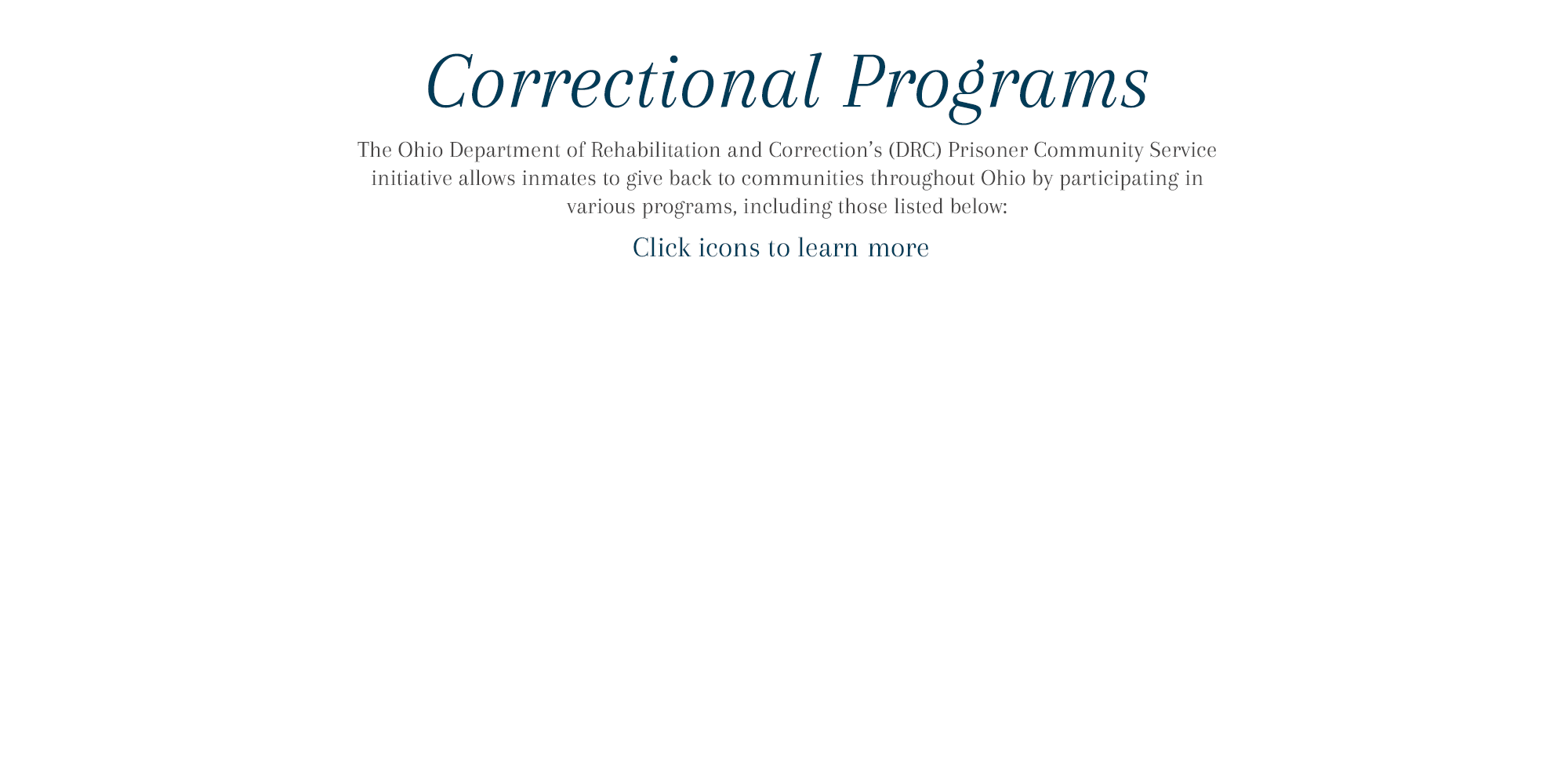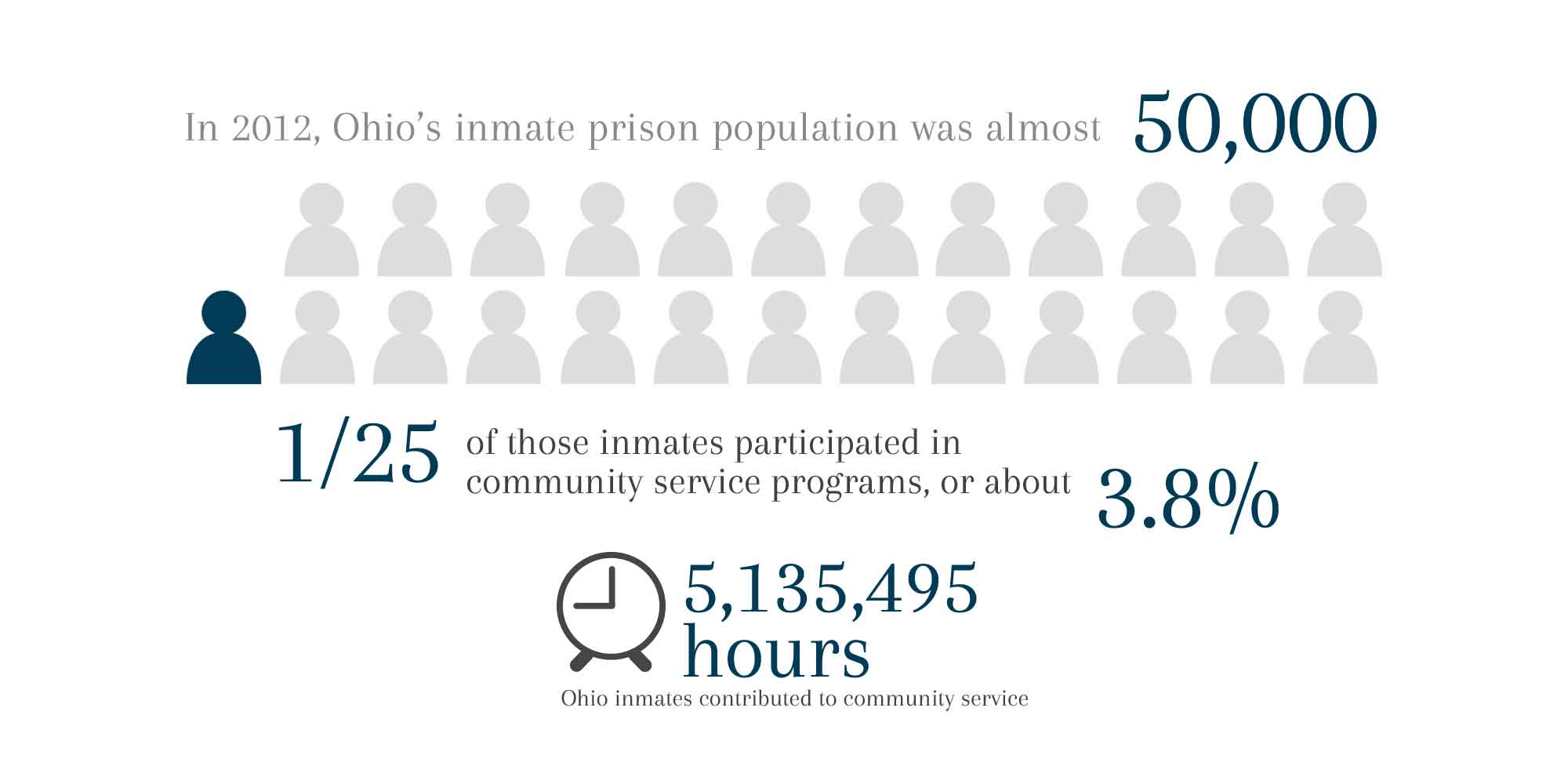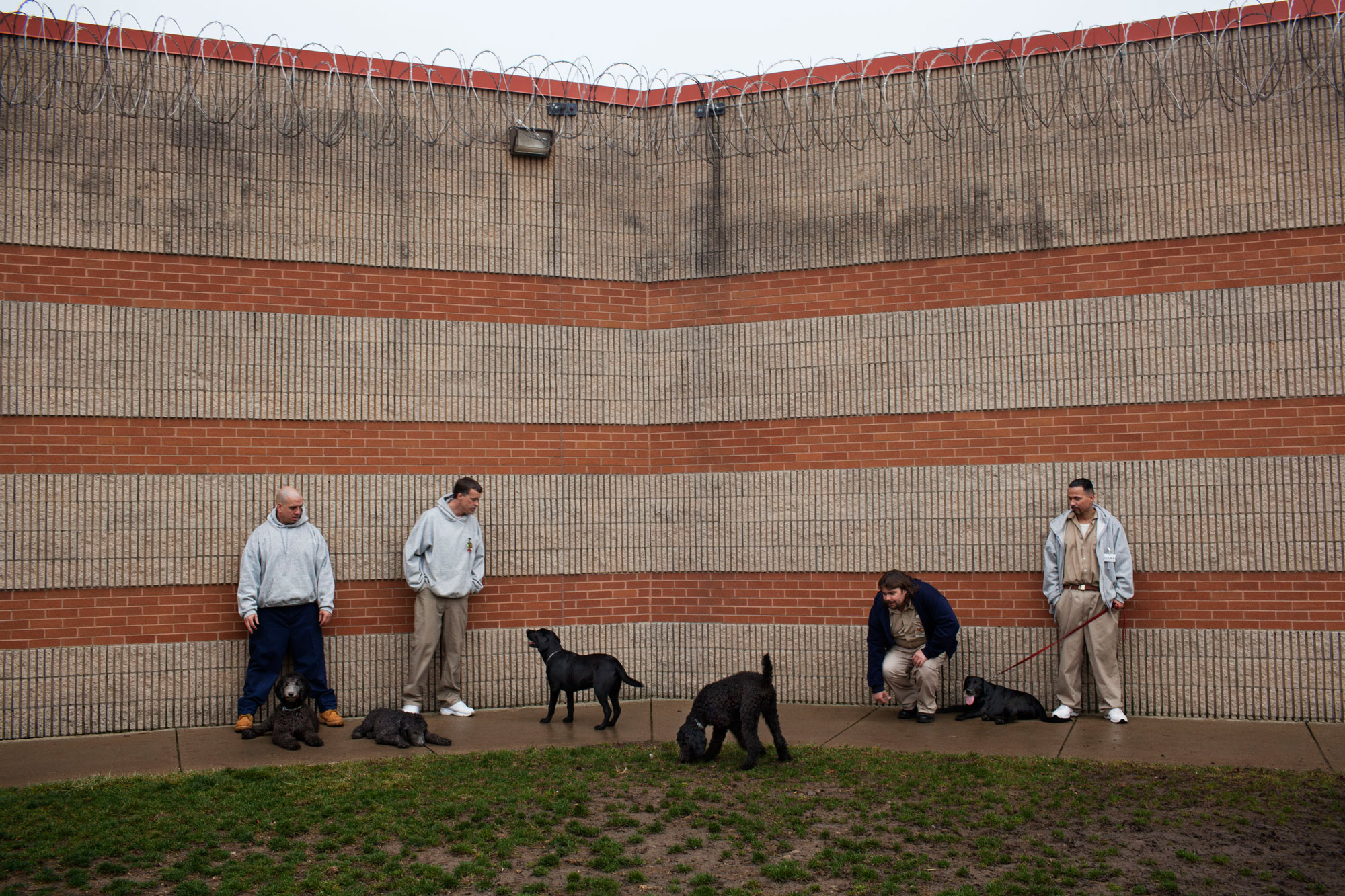
Inmates take a break from training their Pilot Dogs at Franklin Medical Center in Columbus, Ohio. As part of the Pilot Dogs Program, inmates train and socialize puppies that will eventually assist the visually impaired.
It’s a crisp spring afternoon in Columbus, Ohio, and a scene plays out that takes place in dog parks and outdoor spaces all across America: puppies chase each other through the grass while their handlers watch with satisfied smiles on their faces as leashes dangle at their feet.
This is not a park though, but the recreation yard of a prison, and the satisfied handlers are inmates. The dogs can play for now, but soon it will be back to work, as the inmates prepare these puppies for their jobs in the outside world.
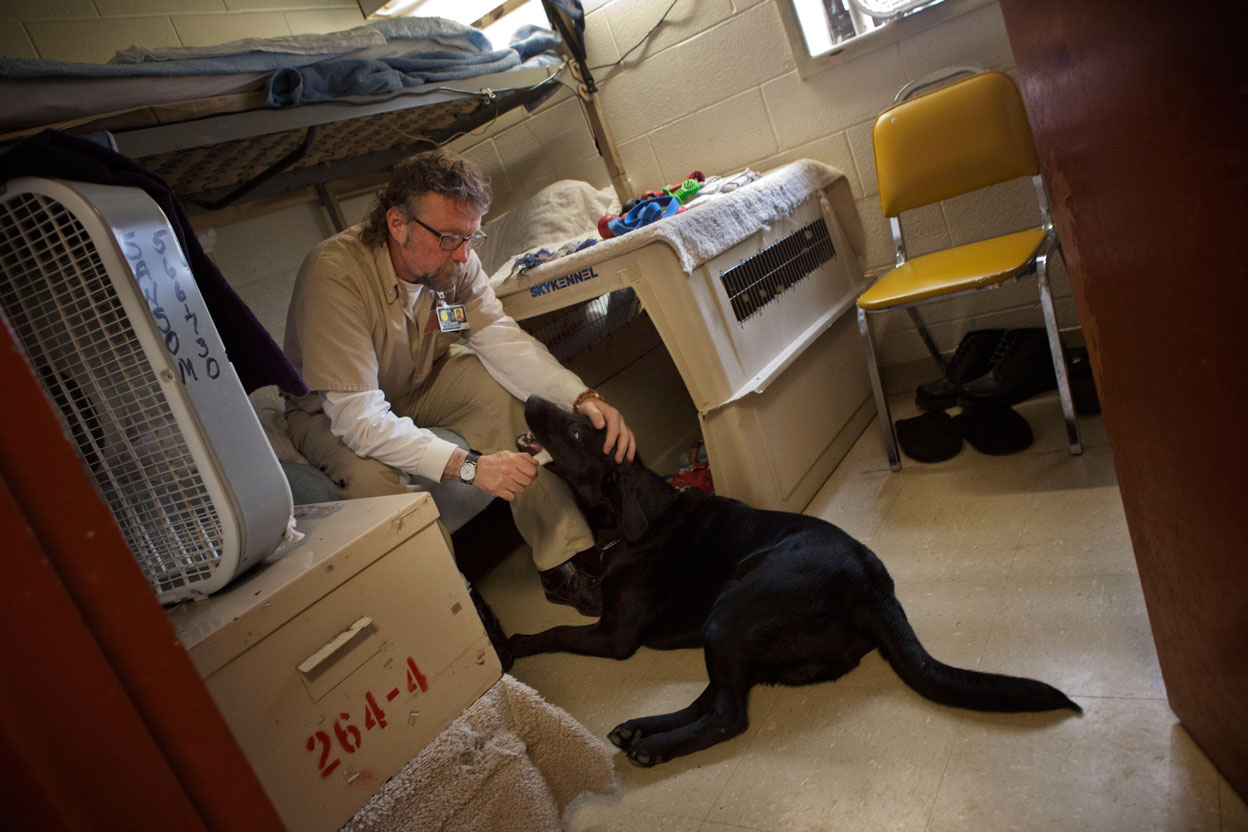
As part of the Pilot Dogs Program at Franklin Medical Center, inmate volunteers prepare puppies to assist the visually impaired. Inmates housebreak, teach basic obedience and socialize the puppies for the first year of their lives.
As part of the Pilot Dogs Program at Franklin Medical Center, inmate volunteers prepare puppies to assist the visually impaired. Inmates housebreak, teach basic obedience and socialize the puppies for the first year of their life, caring for them 24 hours a day and even boarding them in their rooms.
Pilot Dogs, a nonprofit organization, has run a training program at Franklin Medical Center, formerly Franklin Pre-Release Center, since 1993 and also runs puppy training programs in three other correctional institutions in the state of Ohio.
According to Toni Gray, spokesperson for Pilot Dogs, there are many benefits to utilizing inmates to socialize puppies and prepare them for lives as service dogs. Unlike most puppies that are raised in homes as pets, those cared for by inmates in a correctional setting are with their handlers 24 hours a day and live in their cells.
“I ain’t training the dog,” said inmate volunteer, Marcelino Esparza.
“The dog is training me.”
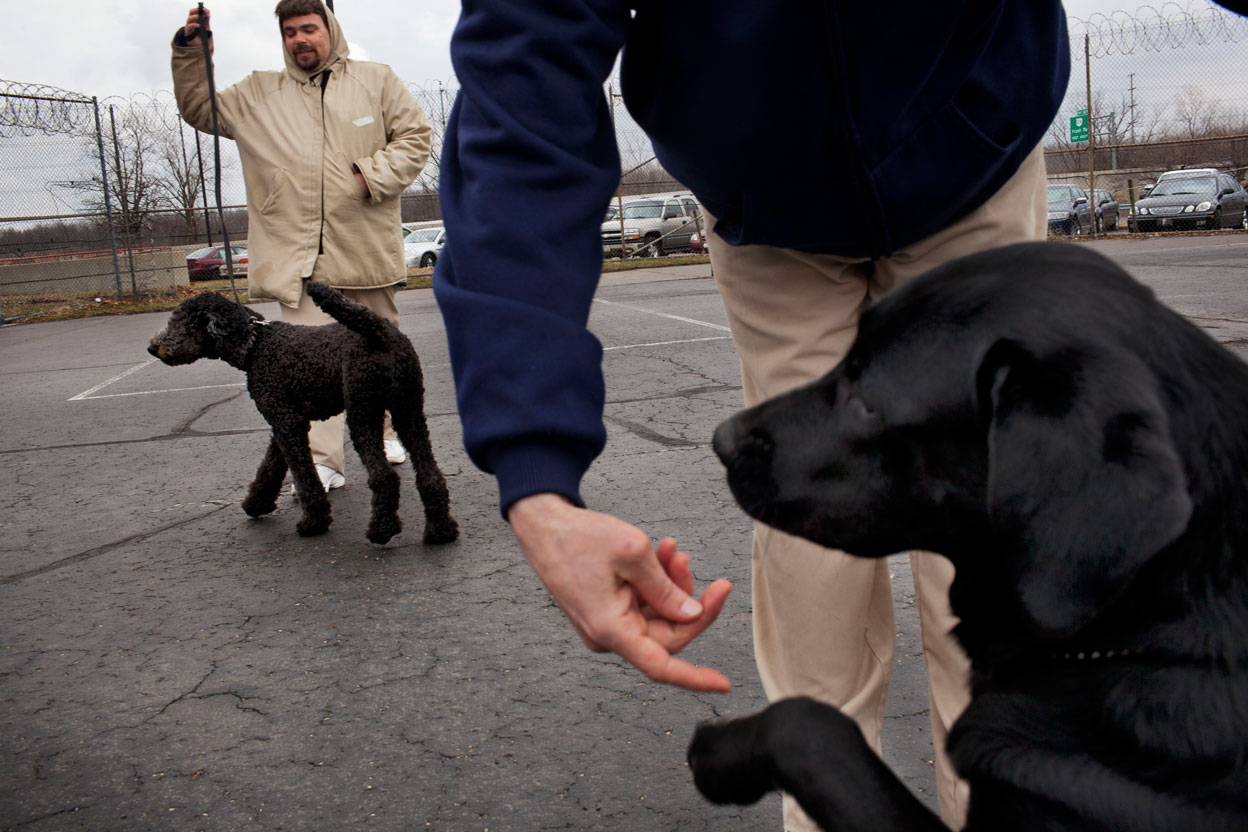
Inmate volunteer Larry Hunley, left, and Brian Holland, right, teach their Pilot Dogs basic commands in the recreation area at Franklin Medical Center in Columbus on March 13, 2013.
Marcelino is 42 years old and says that he has spent half his life in the corrections system. Getting into altercations in prison was commonplace for him. When he entered the Pilot Dog program, though, and had to housetrain a 6-week-old puppy by taking him outside every two hours for the first two weeks, there was no time to get into fights.
“I thought, ‘Wait a minute. If I get locked up or go to the hole, who is going to take care of my dog?’ That’s when I knew I had fallen in love with training dogs.”
Some inmates come into the program with previous experience handling dogs. Ronald Sansom volunteered in a program at Franklin Medical Center working with rescue dogs for two years before joining the Pilot Dogs Program. As a child, he says he helped his grandfather raise dogs for handicapped children.
“It’s made a really bad situation more positive for me,” said Ronald. “If the system offered more programs like this, it would help the inmates a lot.”
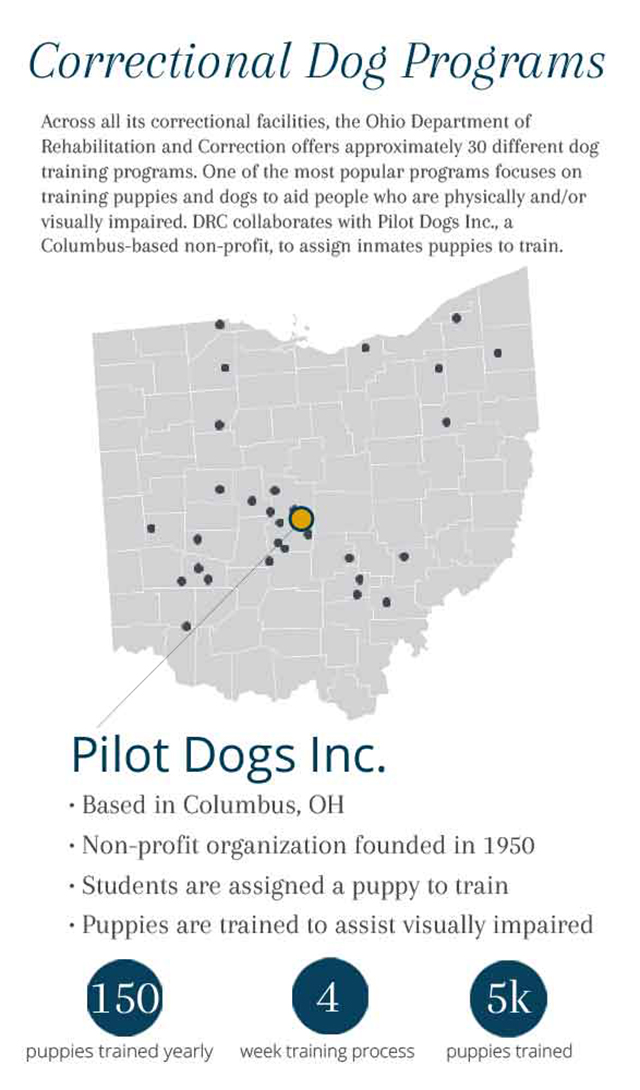
Despite some of the restrictions of socializing puppies in a prison, including a lack of exposure to normal stimuli, including cars, vacuum cleaners, and other electronic devices, Gray believes the benefits outweigh any detractions.
“We feel like this is a win/win for both,” said Toni. “We always need puppy raisers and it seems like the inmates enjoy having this project. The inmates take an interest in what needs to be done to make a good guide dog. It seems they genuinely care about the outcome.”
“ I ain’t training the dog. The dog is training me."
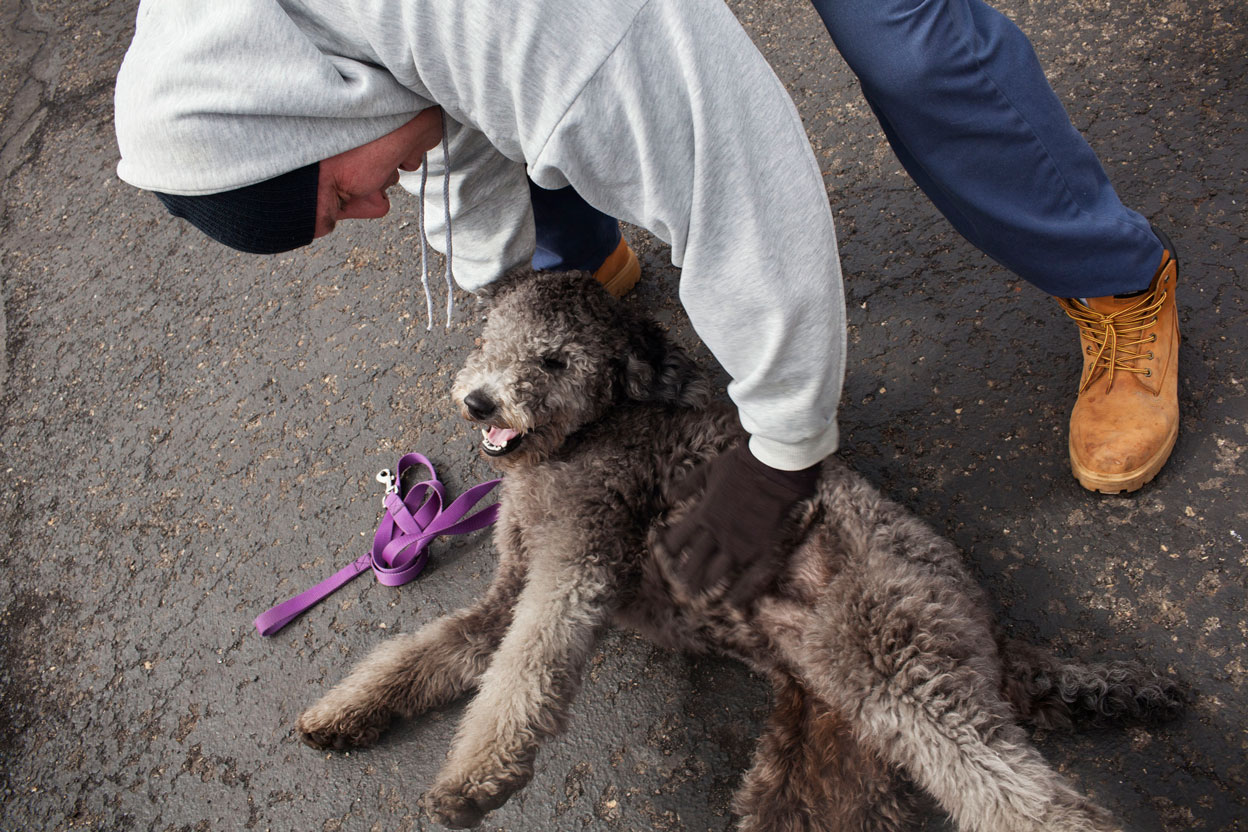
Inmate volunteer Brian Nelson shows some affection to his Pilot Dog poodle Windsor, after training at Franklin Medical Center in Columbus on March 13, 2013.
Sergeant Dena Williamson, supervisor of the program at Franklin Medical Center, notes the reciprocal, positive impact of the relationship between the dogs and their handlers. In return for the care the inmates provide for the puppies, inmates benefit from the presence of the dogs. “There’s a lot of love there,” she says, “There’s love there and companionship.”
After the first year, puppies return to the Pilot Dog school in Columbus and are put through an extensive training program for three-to-four months. Pilot Dogs then provides the trained dogs to the blind at no cost.
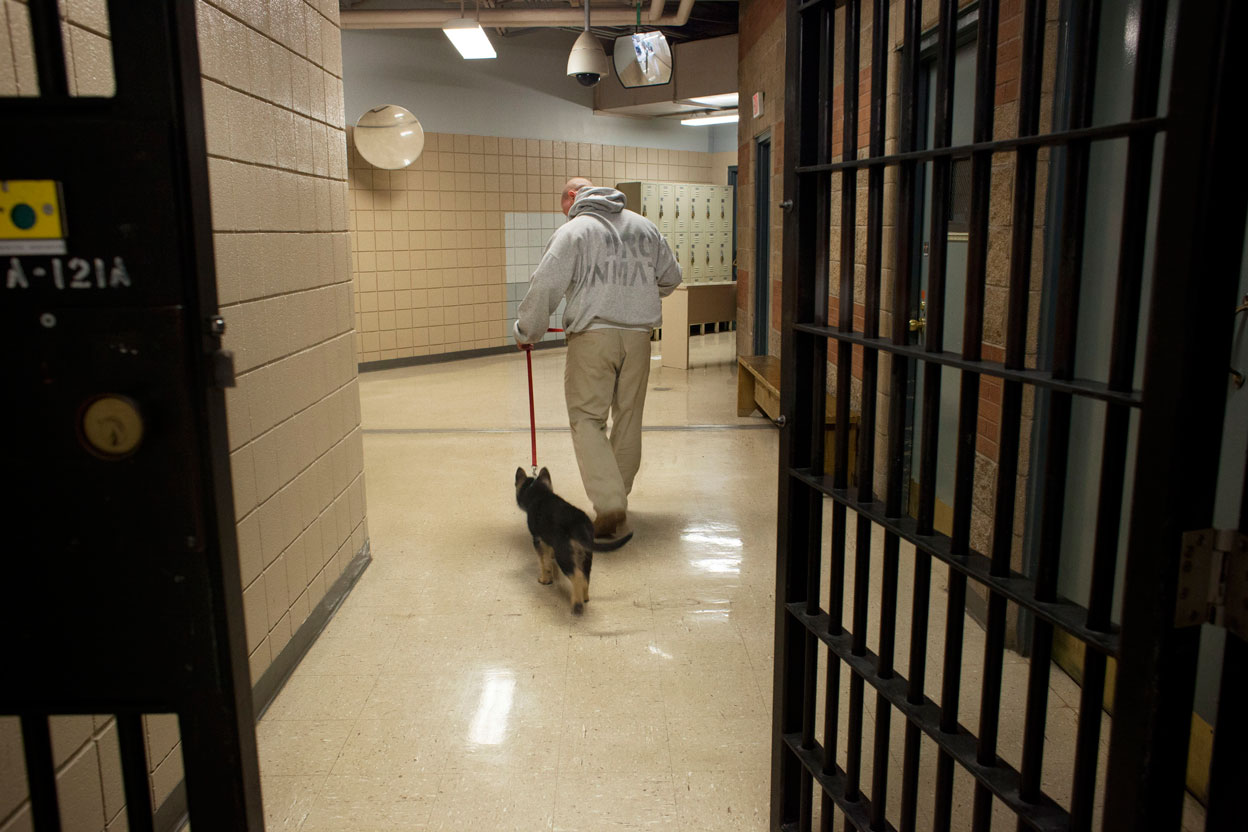
An inmate volunteer Michael Shaffer walks his Pilot Dog, a German Shepherd puppy, through the halls at Franklin Medical Center in Columbus on December 18, 2012.
For volunteers and staff in the program, graduation from the prison into, what they call, “The Pilot School” is bittersweet.
“I see them everyday, we get attached to them,” said Sergeant Williamson. “I get a little bit emotional too, and I don’t live with them.”
For one inmate volunteer, Brian Nelson, the reward of knowing a dog he trained will make a difference in someone else’s life softens the blow of losing a companion.
“I can’t wait for them to graduate,” said Brian. “That means that they’re a step farther into their life too."


